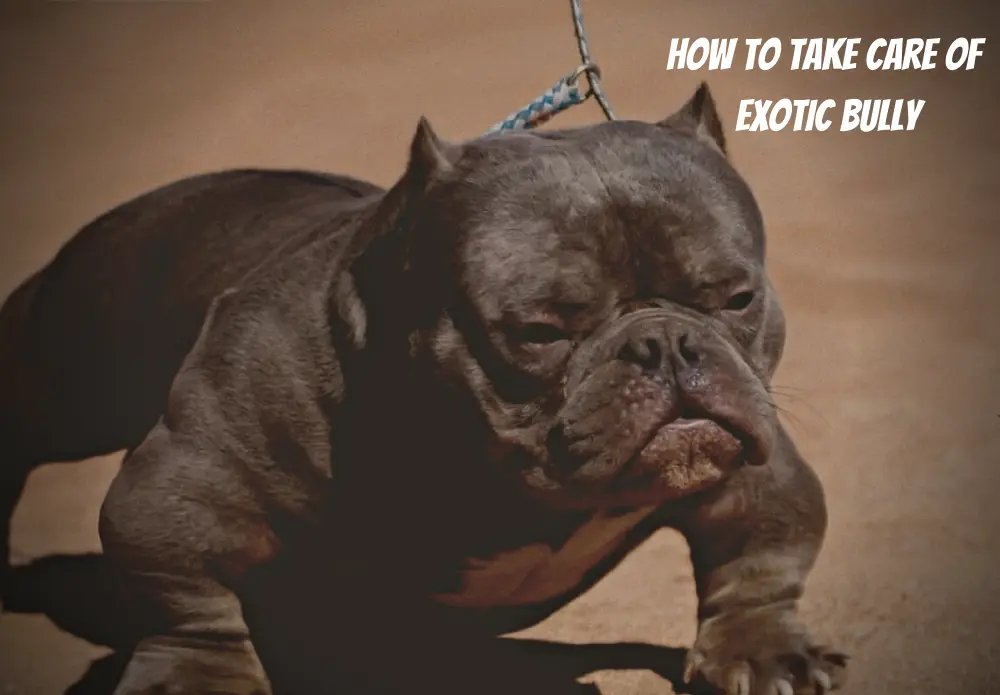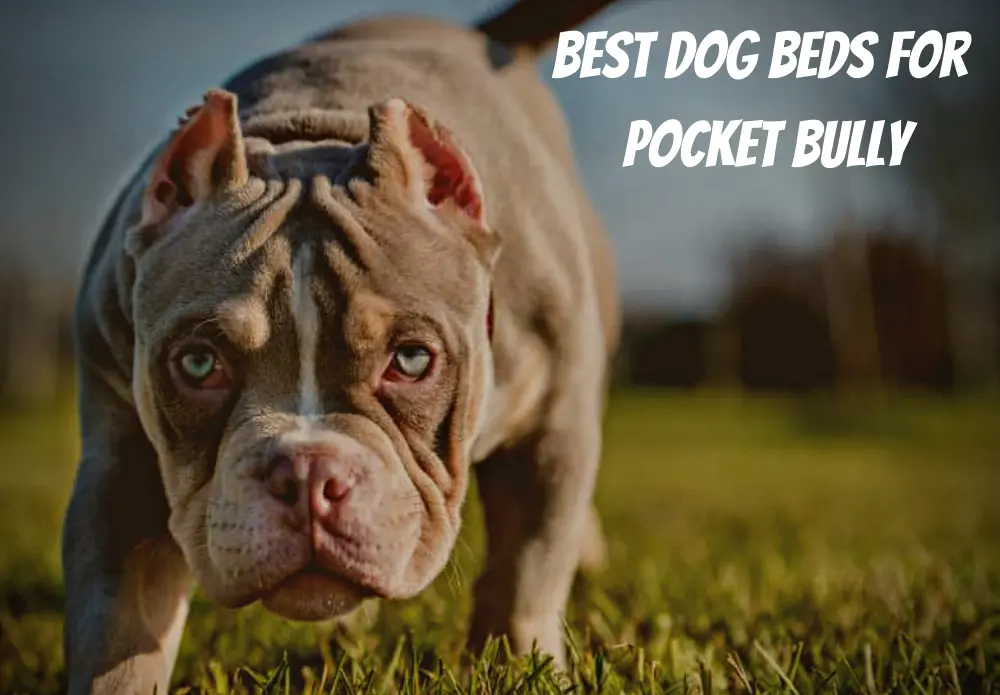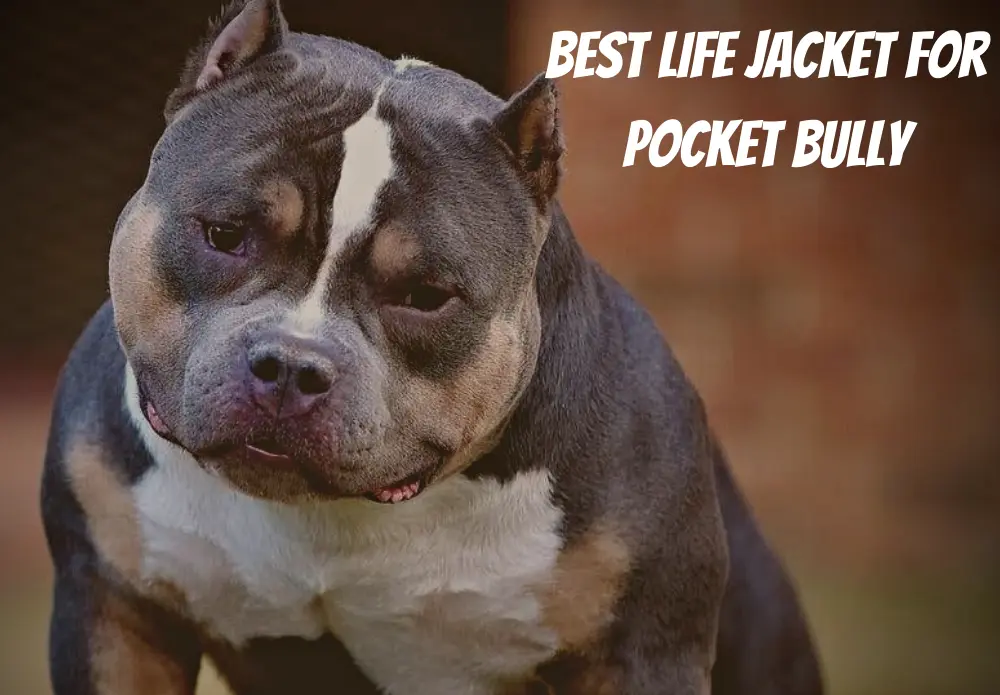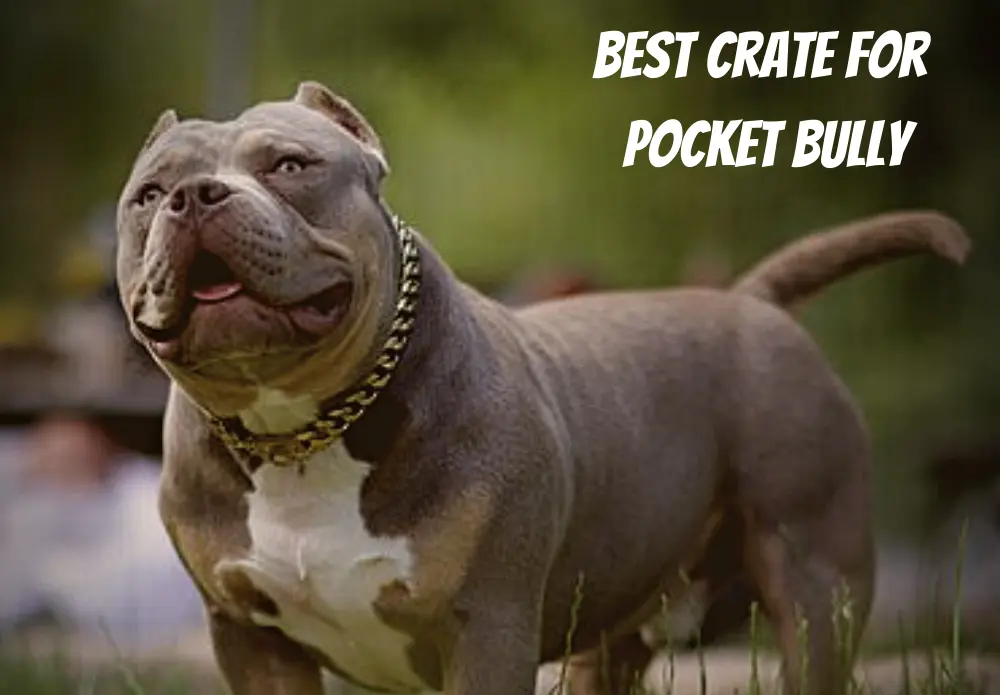The overall maintenance of Exotic Bullies is easier than most dog breeds because they have short hairs, which means less shedding. But it is only sometimes a good day, and you can face problems if you own an Exotic Bully.
Today we will learn about the needs of Exotic Bullies and how to take care of them.
How to Take Care of Exotic Bully?
To take care of your Exotic Bully, you need to come prepared because their short coat may not shed a lot, but their muscular and extremely stocky bodies may cause problems for them and you.
Often they face overheating, heart attacks, and joint problems due to their overly large muscles on a small body.
You have to make sure you stay in touch with your vet all the time and provide your dog with the best of everything possible. Always feed your Exotic Bully high-quality food full of nutrients and keep him clean to avoid health problems.
Here is a detailed guide to taking care of your Exotic Bully:
Diet and Nutrition
You want one or more whole meats as the first ingredients in pet food, so check the ingredients label. Exotic Bullies love whole meats like a lamb, fish (salmon is common in Bully diets), beef, or chicken.
Some premium dog foods, like this grain-free kibble made by Fromm, are made with the wild game bird. Note how duck, peas, and turkey are the first three ingredients. The ingredients listed first on your puppy’s feed are the most prominent in the meal.
Greens
Plant-based proteins. Instead of using cheap fillers, look for premium plant proteins to round out the protein list. Examples that don’t provoke an allergy in your dog include vegan protein sources like lentils and peas.
These are hypoallergenic, vegetarian proteins that an Exotic Bully’s sensitive digestive system can easily break down and digest. For example, Nulo’s grain-free food for Bullies has plant proteins from whole peas, sweet potato, chickpeas, lentils, and dried fruit.
Fats
Healthy fats. Omega-3s keep your Bully’s coat and skin glossy and healthy. Examples include fish oil and coconut oil. If you’re feeding a Exotic Bully puppy, your vet may recommend a food containing an essential fatty acid called docosahexaenoic acid (DHA).
While I’ve used all of the above foods, my current choice is Taste of the Wild’s salmon food. Its first two ingredients are salmon and ocean fish, rich in essential fatty acids to keep my puppy healthy, with a gleaming, soft fawn coat.
Vitamins & Minerals
Ensure your Exotic Bully’s diet includes necessary vitamins such as Vitamin A, B complex, C, and D. All these vitamins are essential to keep your puppy’s skin, hair, bones, and healthy.
The diet must also include calcium, iron, and potassium minerals. You can ensure these minerals are present in the food by reading the ingredients on the packaging.
Top Dog Foods for Exotic Bully
These are the best dog foods suitable for all sorts of Exotic Bullies.
- Wellness CORE Senior Dry Dog Food
- ORIJEN Puppy Large Grain-Free Dry Puppy Food
- Taste of the Wild Dry Dog Food
- Nulo Freestyle Salmon & Peas Recipe Dry Dog Food
- ACANA Singles Limited Ingredient Diet Dry Dog Food
- NutroLimited Ingredient Diet Premium Canned Dog Food
- NomNom Now Fresh Dog Food
- Diamond Naturals Extreme Athlete Dry Dog Food
- Stella & Chewy’s Stella’s Freeze-Dried Raw Dog Food
Exercise
As I’ve just shared, active dogs such as Exotic Bullies should have at least 1 hour of physical activity daily. Depending on their energy level, age, breed, and many other conditions, they might need up to 2 hours of daily exercise.
Apart from moderate walking and fun playtime, your energetic Exotic Bully will also need 30 to 90 minutes of vigorous exercise. Strength work, running, and intense games are great ways for him to work out efficiently.
However, the general guideline has a huge gap between the minimum and the maximum recommended. You should research further to determine how much exercise your dog needs!
Training
While exercise is necessary to keep your Exotic Bully healthy, training is also crucial. You should start training your Bully early to develop discipline, which will help you teach him easily in the future.
After discipline training and teaching your Exotic Bully who the boss is, it is time for basic training such as sit, stay, come, drop, yes, and no. Afterward, you can move on to advance training, such as swimming, barking, agility, fetch, and tug.
Grooming
Maintaining the coat of an Exotic Bully is easy because it only involves brushing once a week. For their coat type, it will be suitable to use a soft brush because their skin can be easily scratched with stiff brushes.
Bathing should only be done occasionally because regular baths remove the natural oil in their skin. Due to their short coat, exotics may find it challenging to tolerate cold weather.
Therefore, it helps to provide them extra protection like dog jackets and coats, especially if you live in a country where winter is long and snow is excessive.
Like most Bully breeds, Exotics Bullies are prone to shedding despite having short coats. Shedding can be easily managed by brushing your dog’s coat using a soft boar-bristled or bristle brush, especially for short-haired breeds.
Owners of Bullies may not notice it, but their short strands can accumulate on the floor and furniture after a while.
Although they shed, this is minimal and can be easily managed with regular vacuuming. A vet should evaluate bullies that shed too much because they may suffer from a specific health issue.
Conclusion
Exotic Bullies are a new breed, so little is known, but their needs are almost identical to other breeds. You must be careful in caring for them as they can be sensitive. You will find great joy in having Exotic Bully as your pet.






